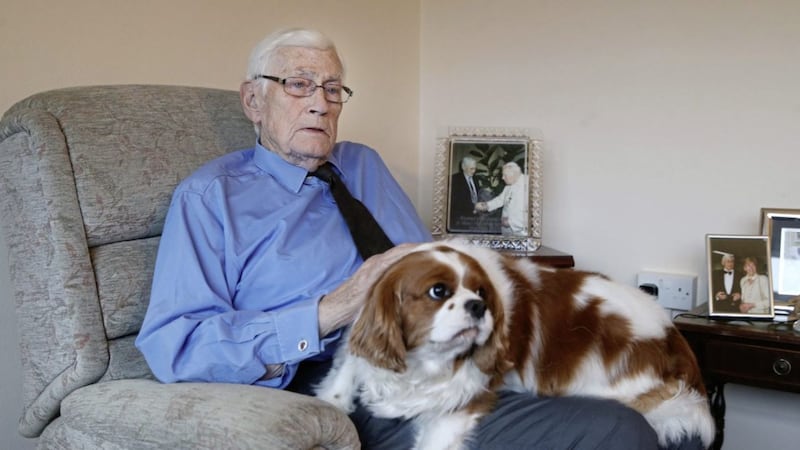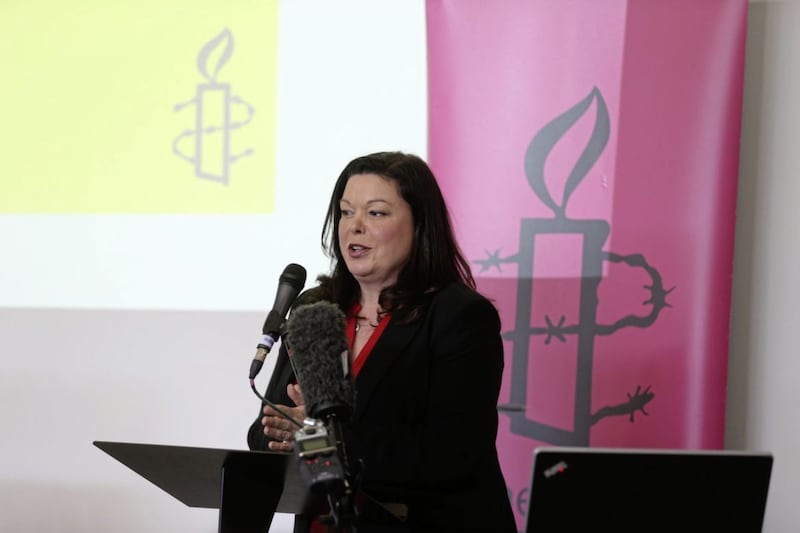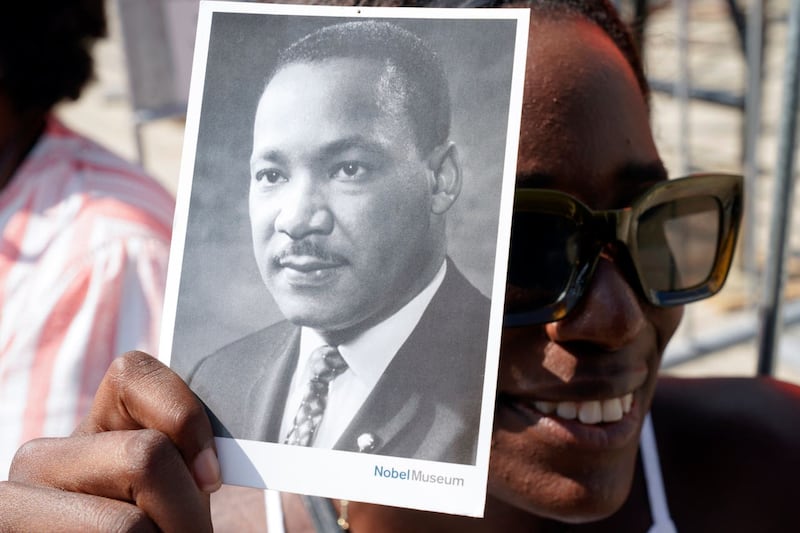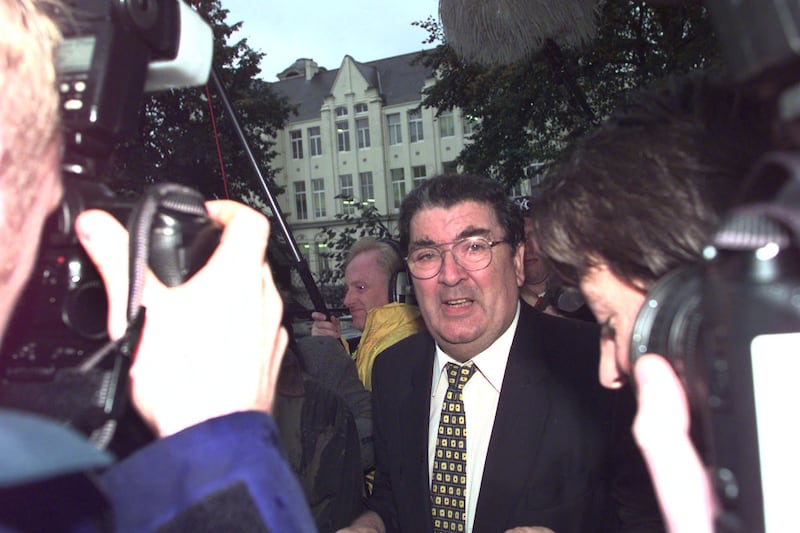MARTIN McGuinness is not the only nationalist deputy first minister to have experienced a lack of respect from their unionist counterpart in office, as Seamus Mallon can testify. Mallon, who went into the first partnership devolved government with former Ulster Unionist Party leader David Trimble in July 1998 as DFM, says he received almost daily snubs from the then first minister and his office.
"I could write a book about it," says the 80-year-old former deputy SDLP leader, who spent three tough years in the post. “It was hilarious at times. You had to go down to the hall together in those days. He had a great way of walking quickly but I was always about 10 strides behind.”
Speaking from his home in Markethill, Co Armagh, Mallon says his permanent secretary, civil servant Billy Gamble – "an absolute gem" – regularly had to remind the first minister's office that it was a joint operation. He was often irked by slights – another that springs to mind was when Mallon had to insist that Trimble come to his office next time after he was "summoned" to that of his supposed partner-in-power – in a way that seems to parallel the circumstances which in part prompted McGuinness's decision to stand down on January 9.
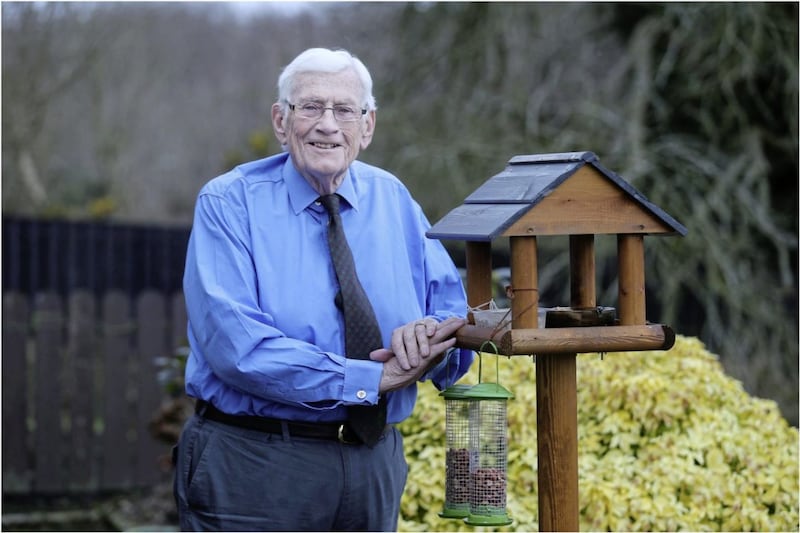
Of the DUP, Mallon says: "The essence of their position is that it's their assembly, it’s their executive. They are forgetting that the Good Friday Agreement is based on the principles of inclusivity and of parallel consent, that nothing can be agreed or done without consent of those representatives of both traditions."
He continues: "Did Martin McGuinness get all the information that he should have got as DFM in relation to Red Sky, Nama and RHI? Because if he didn’t, then the process was not working. I make that point because I know that I had those problems too.
"The way in which [Arlene Foster] and her colleagues treated Martin McGuinness was not showing the type of respect that was needed in an executive but shows how they actually still have this old-fashioned unionism, [viewing themselves] as czars. – 'This is now ours; we are the largest party' – and they did what they liked.
"But I can’t understand how they were let do that."
During his time as DFM, from 1998 to 2001, Mallon received a copy of everything that Trimble got as first minister and vice versa, he says.
Defending the civil servants involved in renewable heating scheme scandal, he says they have been "hamstrung" in the ensuing crossfire.
"I know some of the civil servants who were present around the time of RHI – decent, able, honourable people. How were they treated in all of this?"
Perhaps surprisingly, he also comes to ex-DUP minister Jonathan Bell's defence: "As someone who was in the role of DFM at a very difficult time, I think that Bell’s case rang much more truly than Arlene Foster’s. Did he get all of the information as minister or was it kept from him? Or was it that it became the preserve of the special advisors, by-passing the civil servants on one hand and possibly a minister on the other hand?
"I have no doubt that they did not make available to McGuinness as DFM all of the information that he was entitled to get."
Nailing his point, he says emphatically: "It seems to be just one piece of corruption after another. What a cesspool that place must have been for the last number of years. Because if that’s what’s been seen now publicly, what about all the other things that have been going on that we don’t even know about?"
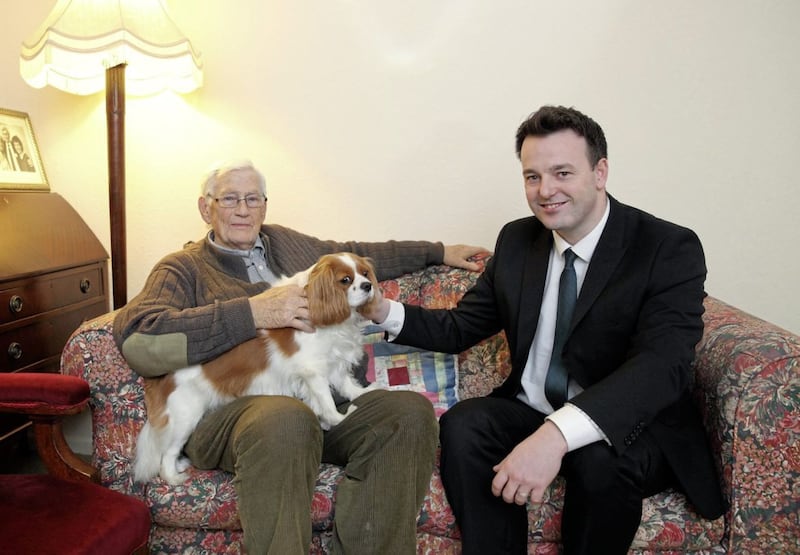
Somehow you can't see Foster and McGuinness sharing a glass of whiskey after agreeing a contentious issue such as the flying of the Union flag at Stormont that Mallon and Trimble – “a brilliant parlimentarian” – once did, Mallon recalls, when the SDLP man suggested the same practice as Westminster – flying the flag on agreed, nominated days only.
In his own words, his working relationship with his party leader, Nobel Peace prizewinner John Hume – who himself turned 80 this week – was "interesting".
"He had a remarkable way of being liked by people who wanted to like him or who he wanted to like him. John, most of the time, didn’t want to let the left hand know what the right was doing. And I suppose my response was, 'That’s grand, I’ll plough my own furrow', so exclusion happened there too, although I wouldn’t overstate it."
"On policy and party stuff, we worked exceptionally well together. There wasn’t friction but because of the tensions there between two different types of people, you get a certain amount of electricity and drive. We didn’t have rows, although we often used bad language to each other. I was very fond of him in a curious way. I still am and have great respect for his intellect and his capacity."
Mallon confirms that he was only asked to be DFM on the morning of July 1 1998, the day his appointment was officially announced, even though Hume had met him in Dublin for coffee the previous day. His only inkling that something might be up was when, while in Dublin, the taoiseach, Bertie Ahern, sent a car to pick him up for an urgent meeting, which then didn’t materialise.
"The next morning back in Castle Buildings, I began to wonder if I’m in the right place. [Then Ulster Unionist MP] John Taylor came in and told me I was in the wrong place – 'Your party meeting is at the Wellington Park Hotel,'" he says. "So I went up there and that’s when I was told, quite literally."
Mallon entered politics accidentally through the civil rights movement of the 1960s when, as a young teacher, he was approached by a Catholic father of a large family who "was living in a hovel, with no electricity, no running water".
"The man came to me because the local councillor, who was able to give out houses at the time, told him that 'No Catholic papist litter' would get a house in Markethill while he was there.”
Despite organising a deputation of influential locals, including two Protestants and a priest, to appeal to the then MP Norman Stronge, Mallon's appeal fell on deaf ears. Spurred on by the incident, he gradually became involved in the civil rights movement and stood for council election in 1973.
In spite of his age, Mallon remains a force to be reckoned with, emphasising at one point that he is still very much able to "hold [his] ground" whenever he goes to the pub.
He stood down, from the Stormont position and as deputy SDLP leader, as did Hume as party leader, in 2001.
The recent loss of Gertrude, his wife of over 50 years, after living with dementia for nine years, has taken its toll on the former councillor, MP, assembly member, and member of Seanad Éireann. But it's clear that he wanted to lead the party to which he devoted more than four decades.
"The obvious time for that to happen would have been when I was appointed DFM – that was a time for a change. It didn’t happen, which left me in a rather difficult situation, a sort of limbo,” Mallon reflects.
"You were there speaking on behalf of the community and [John Hume] was there as your party leader [saying things such as] 'You shouldn’t have said that, you know'. There was always that.
"I would have loved to have been party leader but I had a choice to make. My wife was ill; she had dementia, she was detoriating and it was no-brainer. I had to do my duty. I couldn’t have lived with myself if I hadn’t."
For his only daughter Orla and granddaughter, also named Orla, what Mallon wants of the future is a "sense of hope".
"All the symbols of hope have been dashed by bad politics and by bad administrations. I would like to see a sense of joy in the air which many people have not experienced here for a very long time."
SEAMUS MALLON ON...
Martin McGuinness:
I’m aware that Martin isn’t well and I would say that in his period in the Executive he acted with great tolerance of those around him.
John Hume:
We didn’t have rows, although we often used bad language to each other. I was very fond of him in a curious way. I still am and have great respect for his intellect and his capacity
Colum Eastwood:
He speaks well; he approaches things in a intelligent way but if there’s one thing that he must do, he must get rid of that beard. I told him that many times. He has a young fresh face – we would all love that – and then he goes and covers it up with a beard.
Ian Paisley:
As a lad he took on big house unionism and smashed big house unionism but in his latter years, he mellowed into the system.
Career maxim: In politics, if you are straight and honest, it's everything.
Surprising career fact: I liked the House of Commons as a place to work in. It was a magnificent chamber to speak in, with regards to acoustics.
Favourite place: I loved London with its world-class shows and musicals. I seldom booked a ticket and would walk down the street to the touts and start to bargain.
